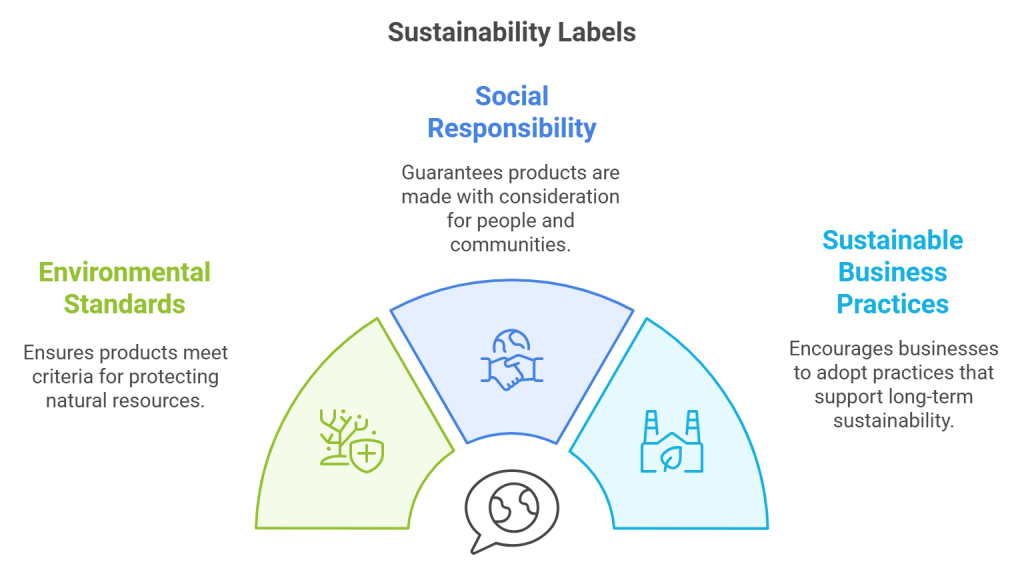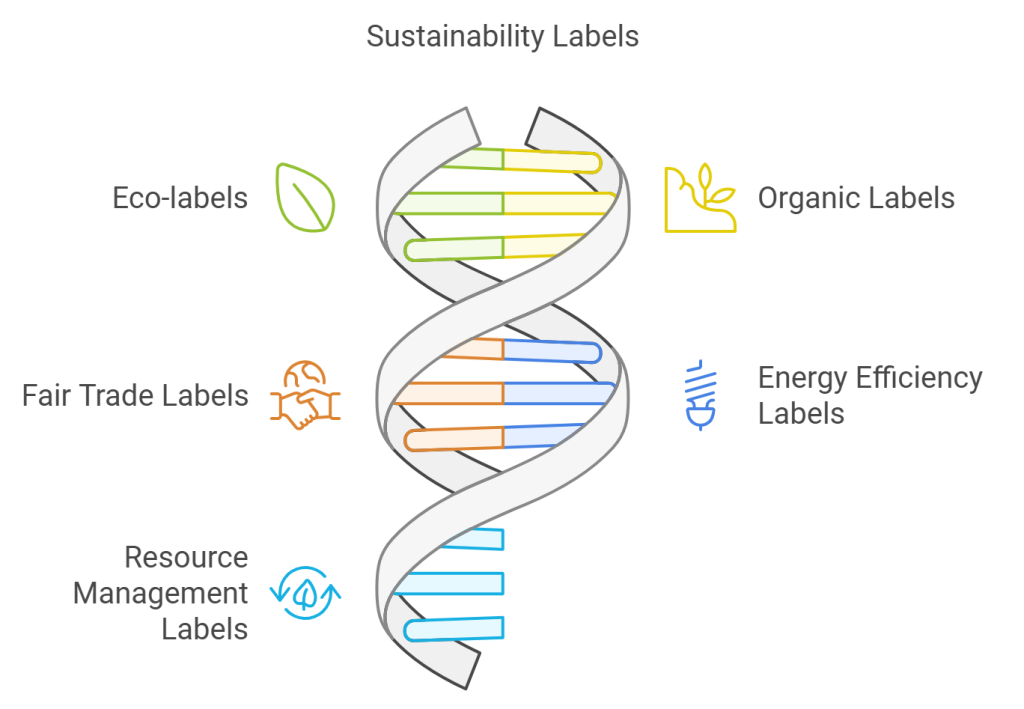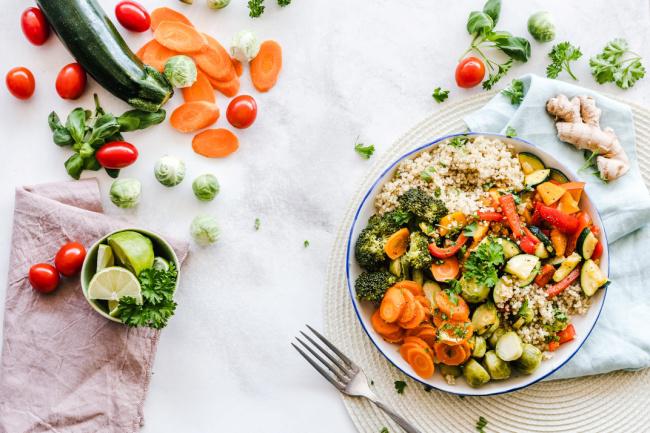
What is sustainable living? How Your Choices Shape a Sustainable Present and Future
By embracing sustainable living, we adopt practices that contribute to the well-being of the environment, society, and economy.
Have you ever wondered what all those labels mean on products that promise to be "green", "organic" or "fair trade"? Do they really make a difference, or are they just a marketing gimmick?
Let's reveal what's behind sustainability labels, why they're important, and how they can help you make smarter purchasing decisions. Do you want to support sustainable development? Choose products that benefit the planet and all of us.
Sustainability labels on products help us determine how environmentally or socially responsible something is, making it easier to make smart purchasing choices. They assure us that the product meets certain standards of nature protection, care for people, and sustainable business. The synergy of consumer decisions can force manufacturers to include support for sustainable development goals in their operations, which further benefits all of us.


Sustainability labels allow consumers to identify products that are more environmentally friendly, socially responsible, or economically sustainable. They provide transparency regarding production processes and help reduce negative impacts on the environment and society. They also encourage producers to adopt more sustainable practices to meet growing market demands for sustainable products.
It is important to pay attention to labels recognized by relevant institutions or based on official certification programs. Examples are presented in the table below.
| Label | What it means | Typical products | Why it matters |
| EU Ecolabel | Products with reduced environmental impact throughout their life cycle. | Detergents, textiles, tourism services. | Promotes eco-friendly products that minimize harm to the environment. |
| Blue Angel | Eco-friendly products with minimal environmental impact. | Electronics, furniture, paints, paper. | The world's oldest eco-label, setting high sustainability standards. |
| EU Organic Logo | Organic food and beverages produced according to EU standards. | Fruits, vegetables, dairy products, eggs. | Guarantees organic farming without pesticides or GMOs. |
| USDA Organic | Products meeting the standards of the U.S. Department of Agriculture for organic farming. | Food, beverages, cosmetics. | Ensures the quality and authenticity of organic products. |
| Fairtrade Certified | Farmers and workers receive fair prices and their rights are respected. | Coffee, chocolate, bananas, cotton, tea. | Supports poverty reduction and social justice. |
| Rainforest Alliance Certified | Products from sustainable farming that conserves biodiversity and supports livelihoods. | Food, beverages, timber, tourism. | Protects ecosystems and promotes workers' rights. |
| EU Energy Label | Energy efficiency classification from A+++ (best) to D (worst). | Home appliances, lighting, air conditioners. | Helps reduce energy consumption and costs. |
| Energy Star | Energy-efficient products meeting U.S. and EU standards. | Electronics, office equipment, heating. | Encourages reduced greenhouse gas emissions. |
| FSC (Forest Stewardship Council) | Products made from wood sourced from sustainably managed forests. | Furniture, paper, construction materials. | Prevents illegal logging and protects forest resources. |
| MSC (Marine Stewardship Council) | Seafood from sustainably managed fisheries. | Fish, seafood. | Supports marine ecosystem conservation. |
| GOTS (Global Organic Textile Standard) | Organic textiles produced without harmful chemicals, ensuring environmental and social standards. | Clothing, bedding, fabrics. | Ensures sustainability in the textile industry. |
| COSMOS Standard | Natural and organic cosmetics with minimal environmental impact. | Creams, shampoos, soaps. | Promotes the use of natural ingredients and eco-friendly production. |

Photo by Angela Roma: https://www.pexels.com/photo/a-woman-holding-a-shopping-bag-7318905/
Sustainable labels are more than just stickers; they serve as guides to living a better life. By choosing products with these labels, we protect the planet, support fair systems, and ensure our well-being. Next time you buy a product, pay attention to the labels and become part of a sustainable change.

By embracing sustainable living, we adopt practices that contribute to the well-being of the environment, society, and economy.

The idea of a sustainable diet was established in 2010.

A sustainable diet is considered to be a diet that resembles a nutritionally healthy diet.

Sustainability goes beyond admiration; it is a commitment to maintaining the delicate balance between our species and the planet.

Several scientists are “defending” meat consumption, replying that red meat is the source of essential nutrients.
Welcome to Sustainable Living by Science. With our scientific mindset, we are exploring how to nurture our well-being while caring for the environment. We are sharing the meaning of sustainability through evidence-based practices. Join us on this journey towards a greener, healthier future where science guides us to make the best choices for ourselves, the planet, and others.
All content is © 2024 by Sustainable Living by Science. All rights reserved.